In December 2017, doctors diagnosed Nicholas Scheid-Brown with Type 2 diabetes.
This came on top of his already-severe high blood pressure.
At just 29 years old, the news devastated him.
“I had watched multiple members of my family pass away from heart disease and diabetes,” Scheid-Brown said. “I knew at that point in time that I needed to make a change.”
So make a change he did.
At the time, he weighed 325 pounds.
Three years later—after bariatric surgery, a new exercise regime and a diet overhaul—Scheid-Brown weighs less than 200 pounds.
His Type 2 diabetes and high blood pressure are now gone.
And those are just the physical changes. He has also transformed psychologically and mentally, working hard to navigate both the stresses and successes of life without turning to food for comfort or celebration.
“I have needed to learn how to healthily get through things in life without turning to my drug of choice, which was food,” Scheid-Brown said.
Planting seeds
In those pre-fitness days, Scheid-Brown would eat three McDonald’s Big Macs or half a gallon of ice cream to deal with stressors.
Now he goes for a run or a bike ride.
“On days when I might have a rough morning, I’ll take my lunch break and run 3 to 4 miles just to clear my head,” he said. “That gets me back on track and reminds me what I’m here for. There’s no way I could have run up the stairs before, let alone 3 to 4 miles.”
Scheid-Brown works for Spectrum Health as a senior prior authorization representative.
He said he has struggled with his weight since age 16. Over the years he has tried dieting and exercising, but time and again he gained back any lost weight.
“I would go on a calorie-restricted diet and I would lose 60 pounds and be super successful at first,” he said. “But then I would reach that plateau where I would just sit for weeks and weeks. I would get frustrated and I would go back to my old habits.”
Back then he smoked two packs of cigarettes a day, too.
“Every time I would yo-yo, I would go down and then I would go up higher than my initial weight,” he said. “It just seemed like a never-ending cycle. It was very frustrating.”
He and his wife, Kristin, have two children, Cameron, 5, and Logan, 7.
Activities such as trips to the zoo or playing soccer with his kids would present difficulties. His hobbies, hunting and fishing, also proved challenging.
But the health issues that arose alongside his obesity scared him the most.
“I would be looking at my children and think, ‘Good Lord, I’m the youngest person in my family to ever be diagnosed with Type 2 diabetes,” Scheid-Brown said. “What does that mean for my longevity and happiness in life? Is this going to be my early grave?’”
Scheid-Brown admits his first introduction to the idea of bariatric surgery did not go well. At a routine physical for work, a doctor suggested he might be a candidate for bariatric surgery.
He felt offended at the time, but he now sees the seed had been planted that day.
“It was always in the back of my mind, but for some reason I just couldn’t bring myself to do it,” he said.
Over the years, people had convinced him bariatric surgery would be the easy way out. He worried about possible complications or side effects.
He would eventually approach his primary care doctor about the idea. That doctor asked him to try one more year of diet and exercise.
He tried another year and then asked for a referral to a bariatric surgeon.
That’s when he met James Foote, MD, a Spectrum Health Medical Group bariatric surgeon.
Putting in the work
Scheid-Brown participated in a six-month process that involved preparation and education before undergoing surgery. In September 2019, Dr. Foote performed a vertical sleeve gastrectomy on him.
The procedure removes 85% of the stomach, Dr. Foote said. It doesn’t require any removal of the intestines, thus allowing patients to continue to absorb all the nutrients from the food they eat.
Another benefit? The part of the stomach removed in surgery is the same part that produces most of the body’s hunger-stimulating hormone, ghrelin.
That means that after surgery, patients simply aren’t as hungry.
“That is one of the big ways that the surgery works,” Dr. Foote said. “Many of my patients say they tend to have to set an alarm on their phones to remind themselves to eat.”
This allows them to make healthier food choices, since they’re not craving sweets or carbs.
In the first six months post-surgery, Scheid-Brown lost 90 pounds.
“I was dropping a pound a day for the first two months,” Scheid-Brown said. “Then a half-pound or a quarter-pound a day after that.”
He went from his official starting weight of 314 pounds to a low of 195 pounds. His original goal had been 220.
“Now food is a means to live, not a reason to live,” he said. “It’s a weird concept for me. Food is meant to sustain my life. It’s not about me wondering what the next thing I can eat is.”
He has also taken up running and biking, putting in 20- to 30-mile bike rides two to three times a week, plus running 2 to 6 miles on the other days.
He’s ready to tackle his first sprint triathlon in Greenville on June 5.
Scheid-Brown has done the work required for the surgery to be successful, Dr. Foote said.
“When you choose bariatric surgery, you want to get an A or a B. You want to do your homework and follow directions or you’re not going to have as good a result,” the doctor said.
Scheid-Brown said he’d highly recommend bariatric surgery to anyone considering it—as long as they’re dedicated to the process.
“If you’re going to have bariatric surgery, you have to be 100% committed to do it for the longevity of it,” he said. “It’s something I have to work at every single day. I monitor every food I put into my body.
“I make sure that I’m exercising,” he said. “This is a lifestyle change. You can’t just have bariatric surgery and sit on the couch and expect to lose 120 pounds.”
He also urges people to prepare for the psychological impact.
“Make sure you’re mentally prepared for the change that will happen, because it’s really weird to walk by the mirror or be folding laundry and go, ‘Wait, who is that person?’” he said. “I used to be folding 4X or 5X shirts. And now they’re L or XL.”
He also struggled once he reached his goal weight, and the weight stopped coming off. He even gained a few pounds from the muscle mass he was gaining.
He needed new motivation: the triathlon.
“I wanted to prove to myself that I have arrived,” Scheid-Brown said. “This whole time you are essentially trading your drug of choice, which is food, for the instant gratification of losing weight at a fast rate. Then you arrive at this destination where you don’t lose weight any more. I want to prove to myself that I’m here, and I’m strong.”
He relies on support from his wife and family, as well as counseling. Spectrum Health Medical Group bariatric support groups have also helped him.
“My wife is very, very proud of me,” he said.
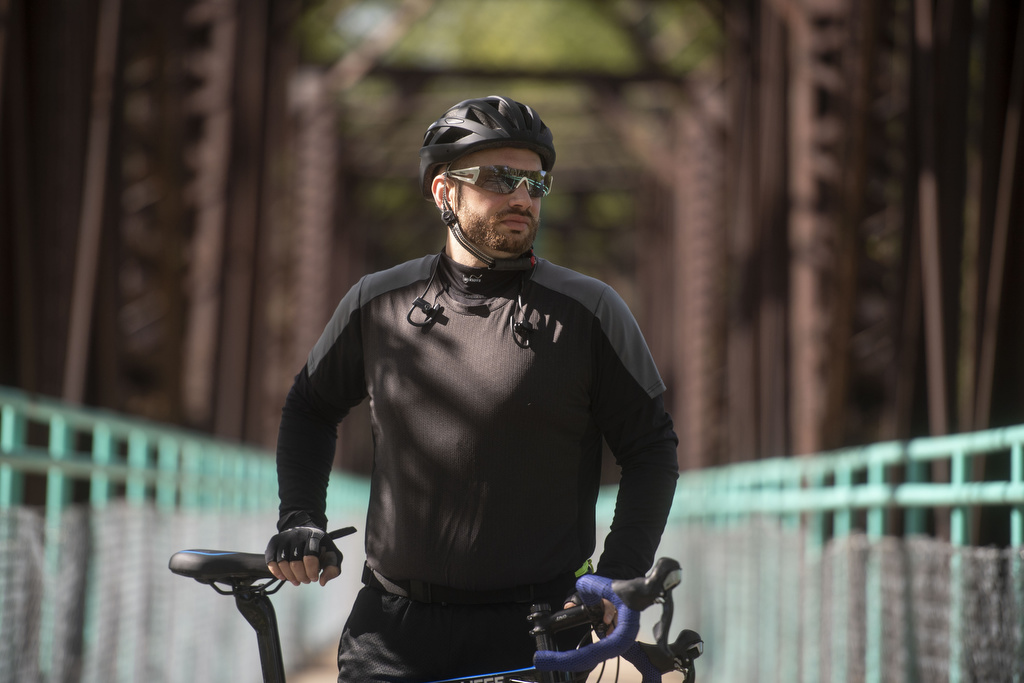
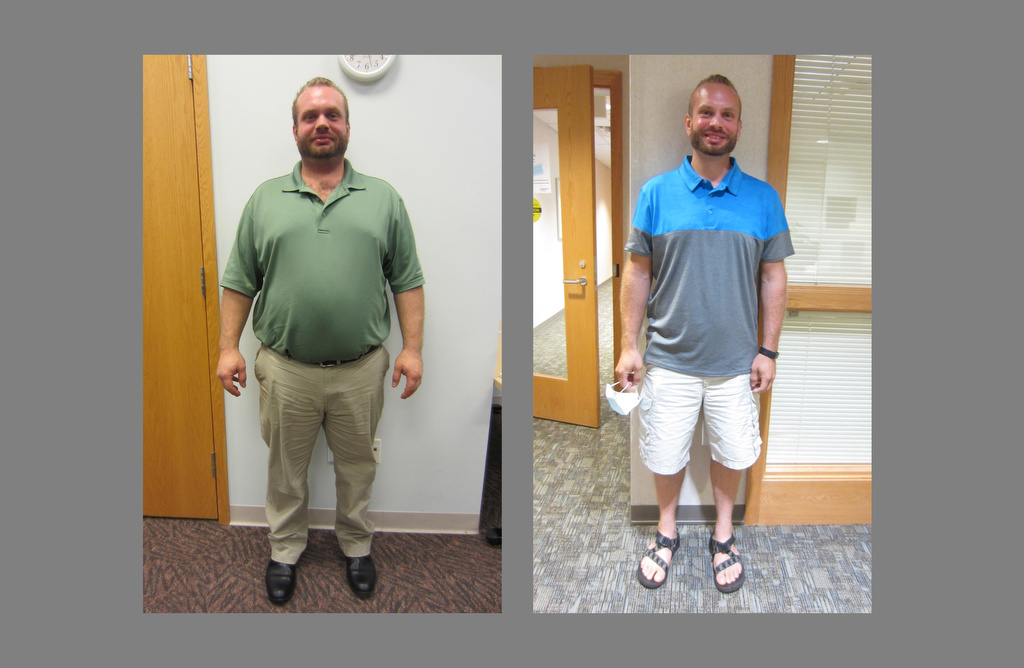
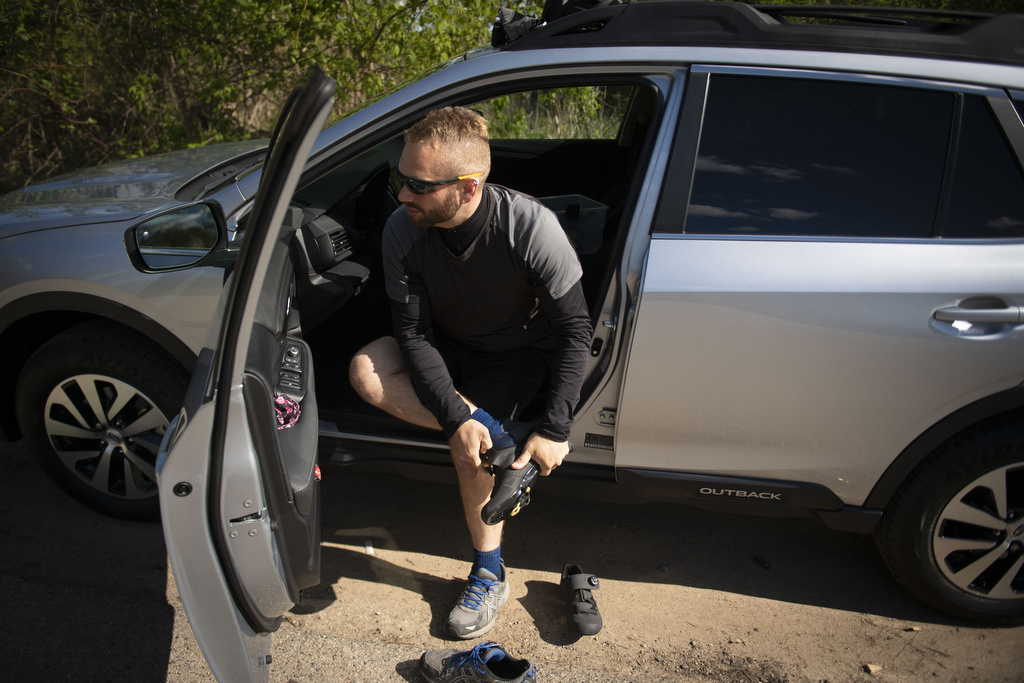
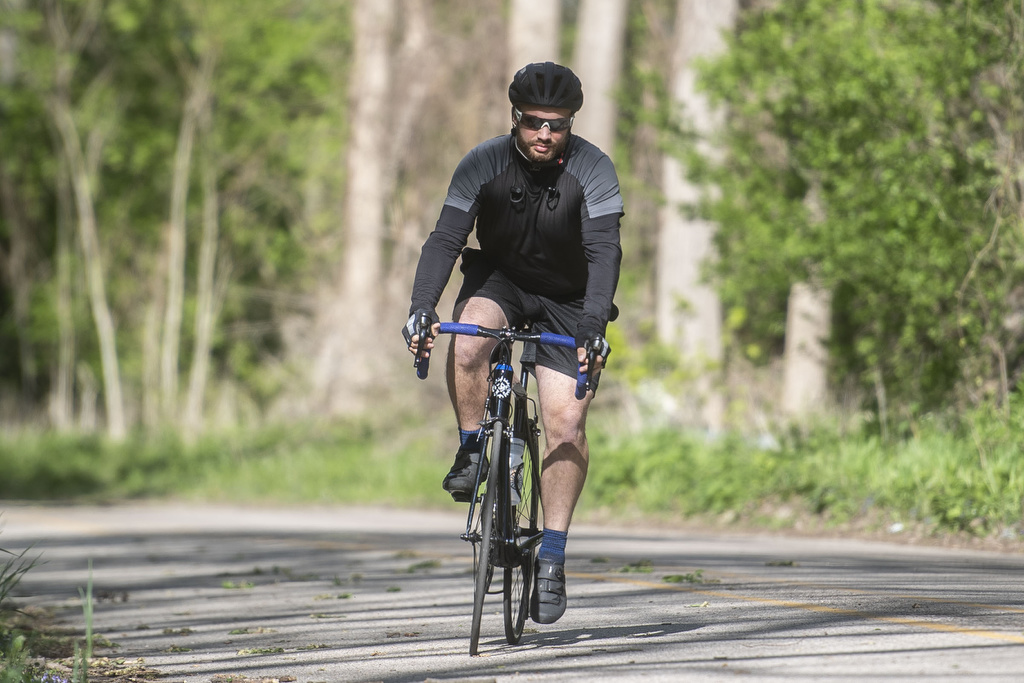
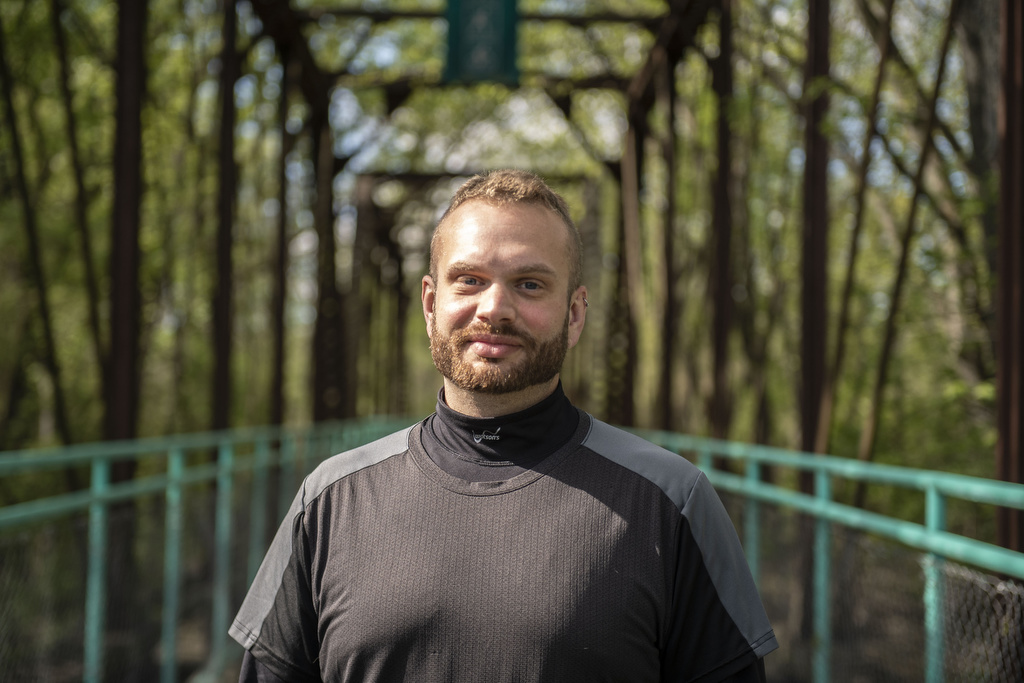
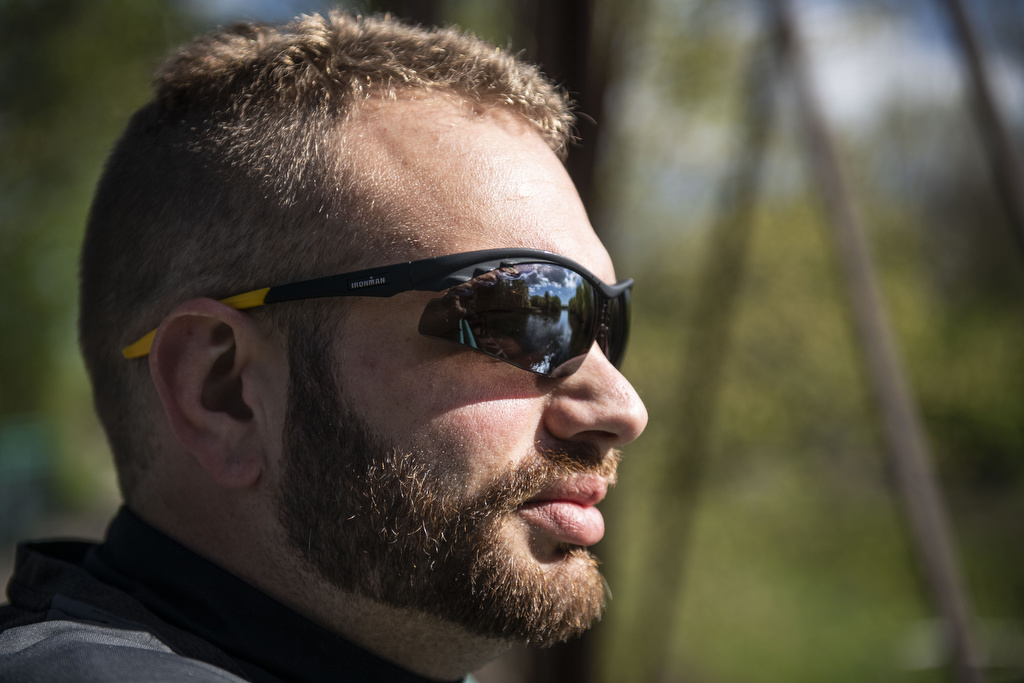
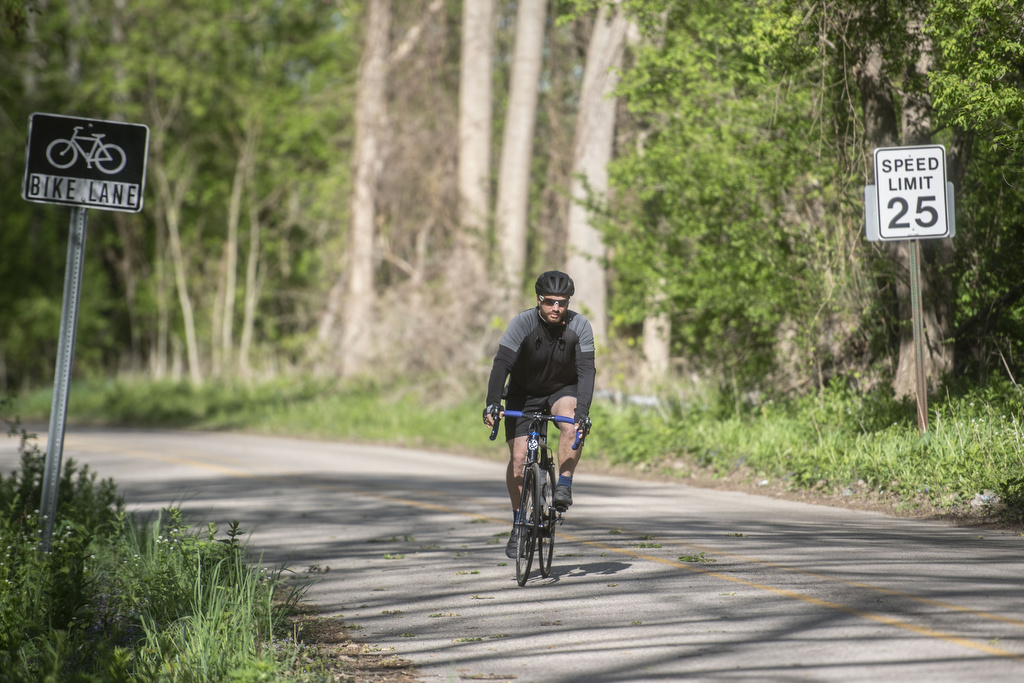


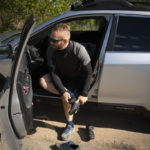




 /a>
/a>
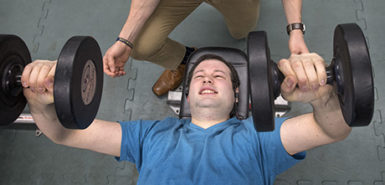 /a>
/a>
 /a>
/a>